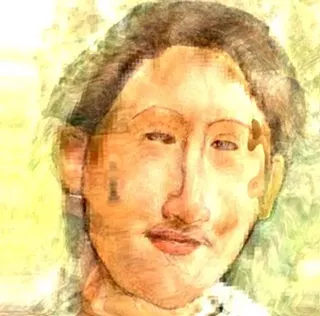On Friday and Saturday, it'll be like sitting through a college lit seminar, being bombarded with book after book after book--all the great books, in fact. The Reduced Shakespeare Company is at it again, having already condensed all the plays of Shakespeare and all of American history into 90-minute shows. Now it turns its deficient attention to All the Great Books (abridged).
Then, drag week will continue with an unrelated series of shows in which Joan Rivers, Cher and Carol Channing are condensed into the begowned and beglittered person of Randy Roberts, female illusionist.
"I've been called drag artist, female impersonator, drag queen--I don't think there's a detrimental term," says Roberts. "They can call me whatever they want as long as they call me."
Invisible Theatre's Susan Claassen called him after seeing his show in Key West. "I was knocked out by his talent, his spunk and his drop-dead gorgeous legs," Claassen reports. "His voice is first-rate, and he moves beautifully, and he's a mensch. After seeing Randy's Cher, the real Cher is a disappointment."
Roberts himself once met Cher, but that was before he started impersonating her. He's also met Joan Rivers and once appeared as Phyllis Diller on the Jenny Jones Show, where he came face-to-face with the real Phyllis Diller. "It was intimidating at first," he says, "but she immediately put me at ease. She said, 'Oh, great, you've got prettier legs than me.'"
And what impressed him the most about meeting the other women he impersonates? "They're a lot shorter than I am."
Roberts describes himself as merely "an actor who found a gimmick. The first time I performed in drag was on a dare, at a screening of the Rocky Horror Picture Show. It looked OK, so then I entered a drag contest singing with my own voice and lost. Then I entered another one lip-synching, and I won, and it built from there."
Roberts uses his own voice now, after having gotten his start as a showgirl in the Las Vegas show Boy-Lesque. From there, he moved on to extended engagements in Puerto Rico, Honolulu and Biloxi ("That's where I first got my name in lights on a real marquee"), then back to Nevada, on to Atlantic City, and now Key West.
Roberts says mastering the voices of the women he portrays is harder than developing a physical impersonation. "I can only do so much with the makeup, and then, only if I've got the right bone structure for the character," he says. "Lighting helps. Vocally, it's finding things people recognize in their voices: their pronunciation, where they place the voice. I try to look as much like them as I can, but if I sound like them, I don't have to look as much like them to pull off the illusion."
Roberts hasn't gotten any criticism from his family over the direction his career has taken; indeed, his mother is a big fan. Her only complaint, he says, is that his dress size is smaller than hers.
Still, he had to leap a psychological hurdle of his own to break into this line of work. "For the longest time, I thought, 'I can't work live in drag; I have a voice like a man, and it just won't work,'" he says. "But then I heard Lauren Bacall and Brenda Vaccaro, and I have a higher voice than they do."
He says his audience is a mixture of gay and straight, young and old and in between. "Bring your grandmother and the grandkids," Roberts says. "If there's innuendo, the grandkids aren't going to get it anyway. And I never cross the line. I'm not out to be offensive." He can say that even while promising a Gypsy Rose Lee routine at the beginning of the second act.
Toward the end of the show, Roberts will settle into a more conventional lounge act, singing standards he enjoys. When he does orchestral pops concerts, he performs the entire second act in a tuxedo--and he admits he'd prefer to kick off the high heels and spend all his career in a tux.
"But a lot of other guys have my look, and I've found a gimmick that keeps me working while they're waiting tables," he says. "Now I'm stuck in a dress. People want to see the man in the dress, and as long as they want to see it, I'll give it to them."
AUSTIN TICHENOR OF THE Reduced Shakespeare Company is perhaps giving people more than they really want--90 minutes jam-packed with 90 canonical books of Western civilization, from David Copperfield to Dianetics, from Tess of the D'Urbervilles to TekWar.
In All the Great Books (abridged), the audience plays the role of a remedial English class. "The regular teacher has been trampled to death at a J.K. Rowling book signing, so we are pressed into service to teach this class before graduation, which is in 135 minutes," says Tichenor. "I play a very excitable and grand drama professor; Reed Martin plays the athletic coach; and Matthew Croke plays the lovable and enthusiastic but slightly dimwitted student teacher."
A few things seem to become garbled in condensation. Tichenor refers to Anna Karenina, for example, as "that sexy Russian tennis player who throws herself under the train."
Some popular books failed to make the cut. "We don't do Lord of the Rings or the Communist Manifesto, because we don't want to cover fantasy," he says.
Asked if this show means he's an apologist for white patriarchal imperialist hegemony, Tichenor replies, "I'm not even sure what you just said. No, really, we do address that issue. Not all of our authors are dead white males. For instance, uh, well, not all our authors are dead. L. Ron Hubbard still comes out with a new book every couple of years."
But in putting this show together, did Tichenor actually read all the great books? "Well, between the three of us, we've heard of most of the great books," he says. "The actual answer is yeah, one of the great joys of doing the show was forcing myself to read many of the great books I'd never gotten around to. The problem in school is that by the very nature of being assigned to read something, it automatically becomes terrible. You're not coming to it with love; you're dreading it. One reason our shows are so appealing is that you don't have to know anything about these books. We're here to tell you the stories of all the great books, and a lot of people go, 'Oh my God, I did know that story after all,' or, 'That's a great story; I want to read that now.' And we do sell many great books in the lobby. But they're the ones we've written."
After devising grander productions, like a 90-minute musical covering the past thousand years of history, Tichenor and company see All the Great Books as a return to their roots. "We want to do something really simple: telling stories badly," he says. "We put the 'suck' in 'succinct.'"










